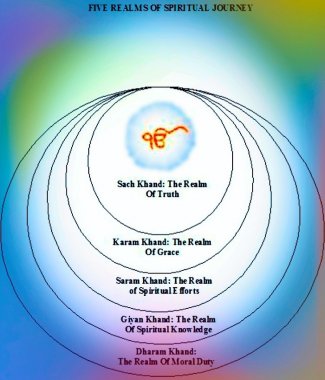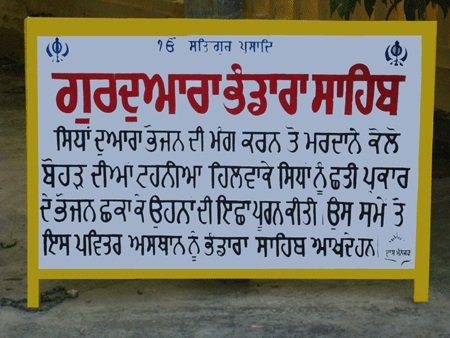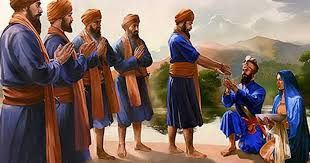
BHAI, of Indo Aryan origin (Sanskrit bhratr, Pali bhaya), means brother in its literal sense and is employed as an honorific as well as in the dominant familial sense and as a title of affection between equals. It has been used in the Guru Granth Sahib in the latter sense and there are several apostrophic examples none of which seems to imply any special rank or status. However, by the middle of the seventeenth century, it was being used as a title implying distinction: the earliest example is the Bala Janam Sakhi (AD 1658) which refers to its putative author as Bhai Bala. The naturalness of its use in this particular context suggests that it must have developed the honorific connotation even earlier though it does not necessarily follow that these connotations were clearly apprehended in earlier usage.

FIVE KHANDS or Panj Khands, lit. realms (panj == five, khand == region or realm), signifies in the Sikh tradition the five stages of spiritual progress leading man to the Ultimate Truth. The supporting text is a fragment from Guru Nanak`s Japu, stanzas 34 to 37. The Five Realms enumerated therein are dharam khand, the realm of righteous action (pauri 34), gian khand, the realm of knowledge (pauri 35), saram khand, the realm of spiritual endeavour (pauri 36), karam khand, the realm of grace, and sach khand the realm of Truth (pauri 37).











